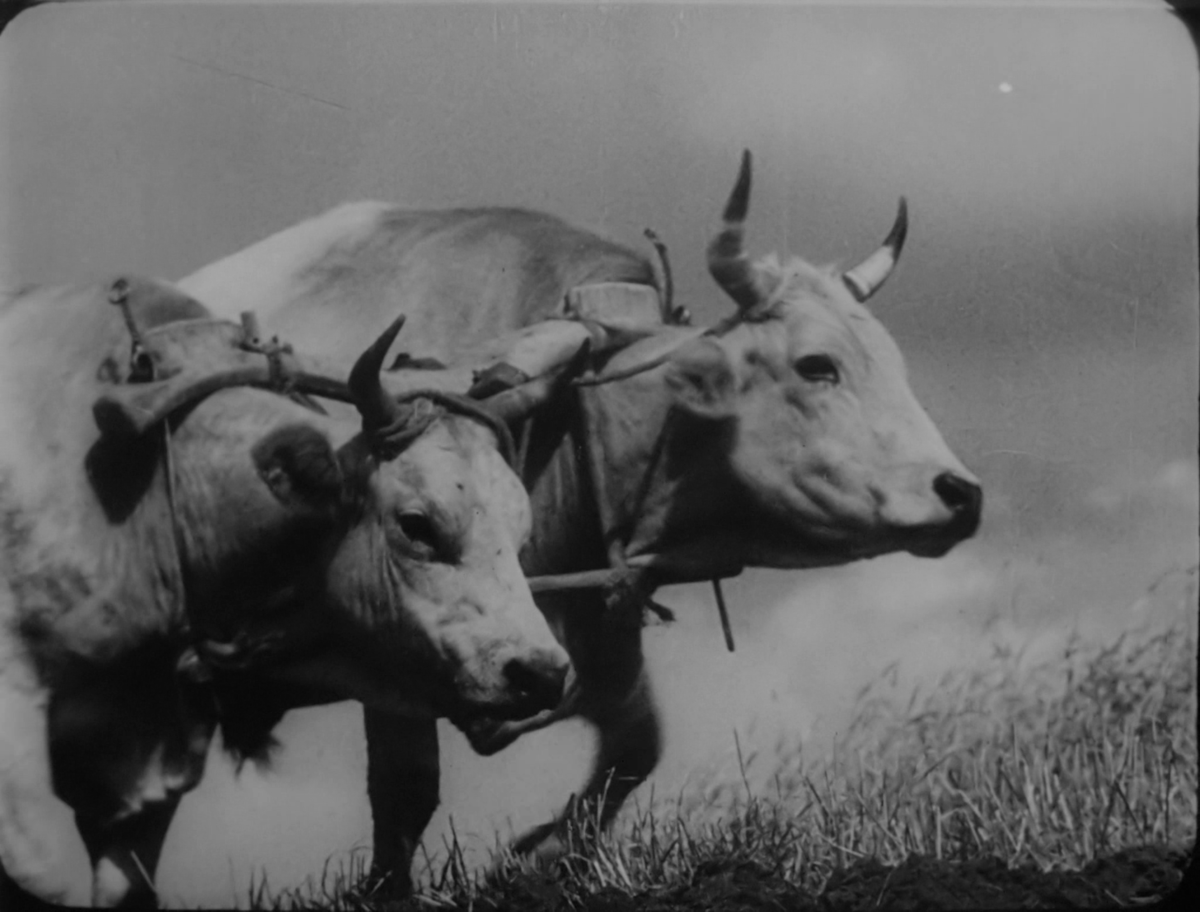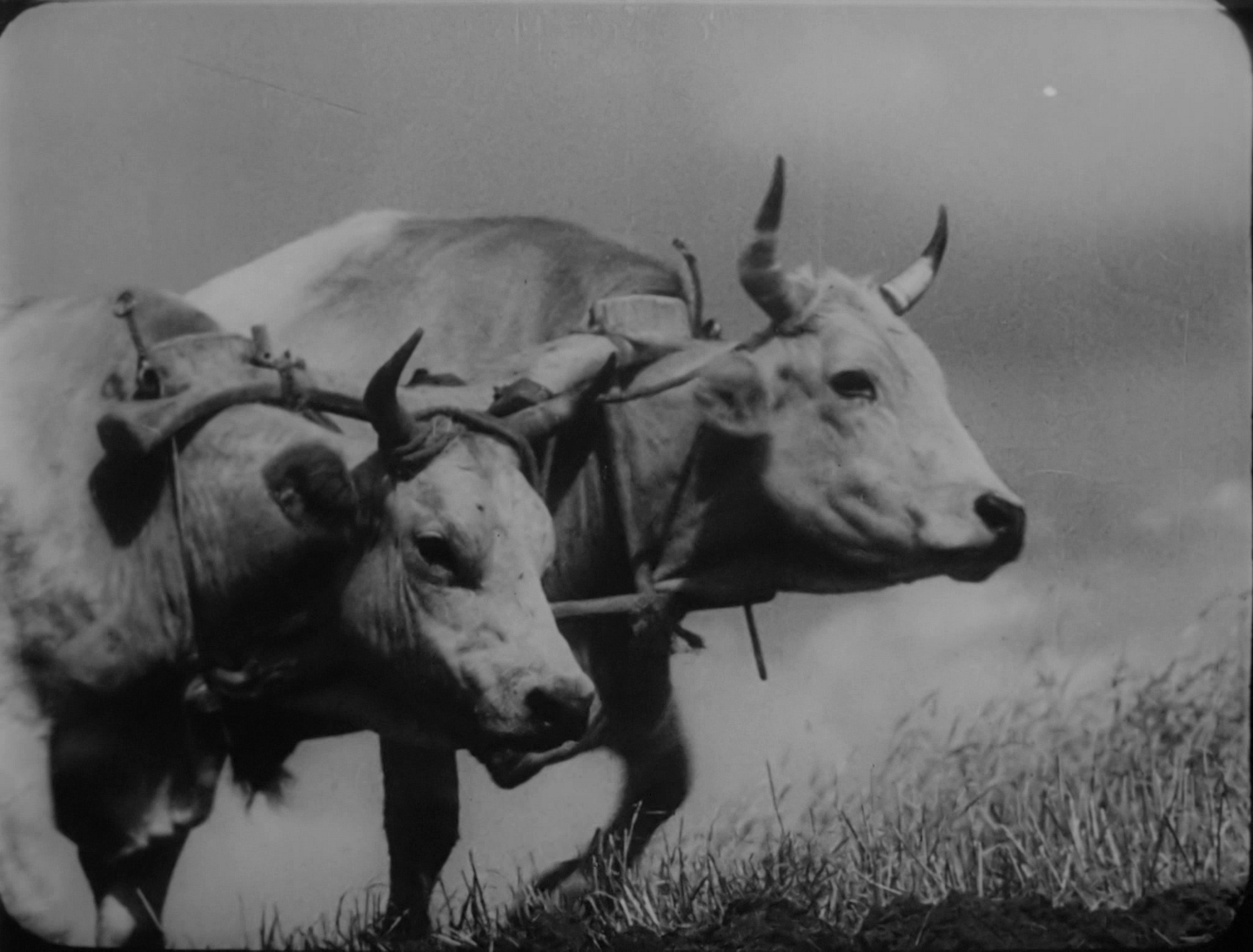Earth
Oleksandr Dovzhenko
1930
76 Minutes
Staff Picks
Date
January 1–31, 2023
A tale of generations, Earth begins with the death of a grandfather, which leads to tumultuous times for his son Opanas and his grandson Vasyl. Set in the early years of the Soviet Union, the film portrays the everyday life of Ukrainian peasants, depicting the complex process of land collectivization that was part of the rapidly changing political and social conditions of the time. When a wealthy landowner appropriates the land of peasants, Vasyl leads a youth movement to form collectivized farming efforts in Ukraine. The landowner becomes enraged when the peasants manage to obtain a tractor, which leads him to commit murder. While sympathetic to the struggles of peasants, Dovzhenko does not provide oversimplified narrative solutions in this fictional story, which unfolds against the context of the forced, often brutal collectivization that took place in Ukraine between 1928 to 1933.
The last and most known installment of Dovzhenko’s trilogy that also included Zvenyhora (1928) and Arsenal (1929), Earth is today considered one of the most significant works in the history of Soviet avant-garde film and praised for its formal mastery, including its stunning cinematography and powerful montage sequences. Characteristic of lyrical style and a multitudinal open-ended story, the film received criticism from Soviet censors for its insufficient support of collectivization efforts and its focus on nature over ideology. The film was banned just nine days after its release. It was not until 1958, after the death of Stalin and after Dovzhenko’s own death, that Earth was made accessible in the Soviet Union and soon gained recognition from international film festivals and critics as one of the most important films of the silent era.
Presented as the January 2023 edition of Staff Picks, with kind assistance from the Oleksandr Dovzhenko National Centre.
For more information, contact program@e-flux.com.


